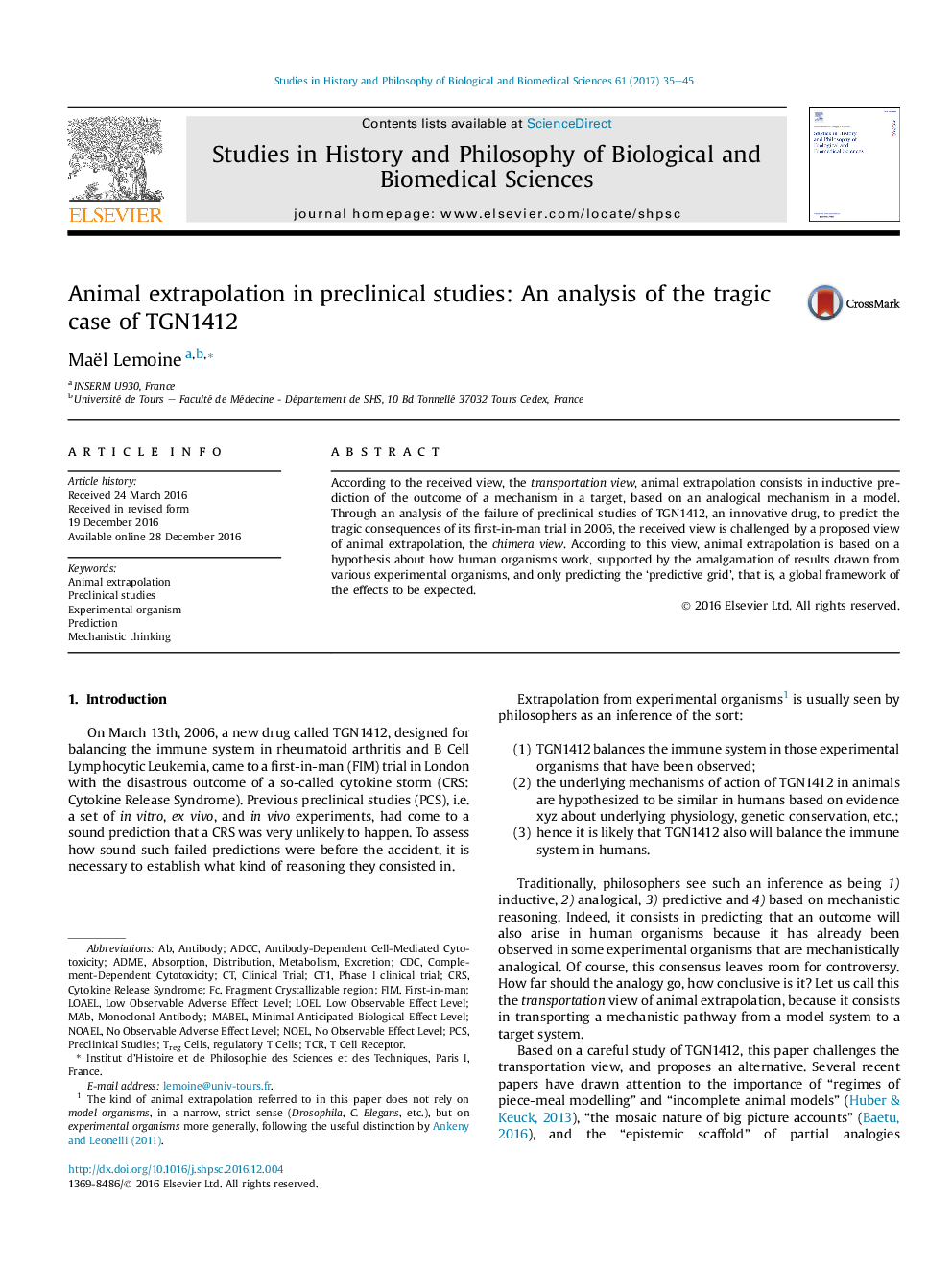| Article ID | Journal | Published Year | Pages | File Type |
|---|---|---|---|---|
| 5130548 | Studies in History and Philosophy of Science Part C: Studies in History and Philosophy of Biological and Biomedical Sciences | 2017 | 11 Pages |
â¢Animal extrapolation does not always consist in an inductive, analogical argument based on the observation of mechanisms.â¢It often relies on the hypothesis of a mechanism with piecemeal support of various animal models, i.e., an amalgamation of evidence.â¢It is reliable at predicting kinds of effects to be expected, but not at predicting their magnitude.
According to the received view, the transportation view, animal extrapolation consists in inductive prediction of the outcome of a mechanism in a target, based on an analogical mechanism in a model. Through an analysis of the failure of preclinical studies of TGN1412, an innovative drug, to predict the tragic consequences of its first-in-man trial in 2006, the received view is challenged by a proposed view of animal extrapolation, the chimera view. According to this view, animal extrapolation is based on a hypothesis about how human organisms work, supported by the amalgamation of results drawn from various experimental organisms, and only predicting the 'predictive grid', that is, a global framework of the effects to be expected.
